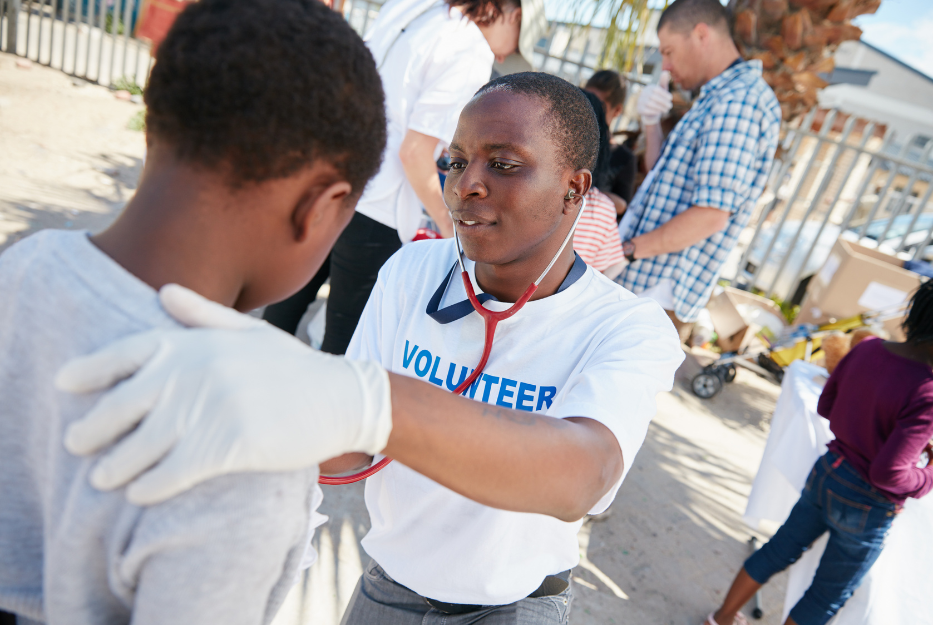How to Access Community Services in Canada (step-by-step guide)

**Please review the disclaimer at the end of this document before reading or using this guide.
As a new immigrant in Canada, accessing community services can be vital for a smooth transition and successful integration into your new community. Community services offer a wide range of support, including settlement assistance, language classes, employment resources, health care, and social connections. This guide provides information on how new immigrants can access community services in Canada.
Step 1: Understand the Types of Community Services Available
- Settlement Services:
- Assistance with finding housing, understanding Canadian laws, and accessing government services.
- Guidance on how to enroll in health insurance and register for schools.
- Language Classes:
- Free or low-cost English and French language classes to improve language skills.
- Language Instruction for Newcomers to Canada (LINC) and French language courses (Cours de langue pour les immigrants au Canada, CLIC).
- Employment Services:
- Job search assistance, resume writing workshops, and interview preparation.
- Information on credential recognition and bridging programs.
- Health Services:
- Access to health care, mental health services, and public health information.
- Guidance on how to find a family doctor and understand health insurance.
- Educational Resources:
- Information on enrolling in schools, post-secondary education, and adult education programs.
- Support with understanding the Canadian education system and accessing financial aid.
- Social Services:
- Support groups, community centers, and recreational programs.
- Services for families, seniors, youth, and people with disabilities.
Step 2: Find Community Service Organizations
- Settlement Agencies:
- Organizations that specialize in helping newcomers settle in Canada. They provide a wide range of services tailored to the needs of immigrants.
- Examples: Immigrant Services Society of British Columbia (ISSofBC), YMCA Newcomer Information Centre, and COSTI Immigrant Services.
- Local Community Centers:
- Offer various programs and services, including recreational activities, social events, and educational workshops.
- Search for community centers in your neighborhood or municipality.
- Public Libraries:
- Provide access to books, internet, language learning resources, and community programs.
- Many libraries offer newcomer programs and information sessions.
- Government Websites:
- Federal, provincial, and municipal government websites provide information on available services and resources for newcomers.
- Examples: Immigration, Refugees and Citizenship Canada (IRCC), provincial immigration portals, and municipal government websites.
Step 3: Register for Services
- Initial Assessment:
- Some organizations may require an initial assessment to understand your needs and tailor services accordingly.
- You may need to provide identification and immigration documents.
- Language Classes:
- Employment Services:
- Visit local employment centers or settlement agencies that offer job search support.
- Register for workshops, job fairs, and one-on-one career counseling.
- Health Services:
- If you need assistance finding a family doctor or understanding health insurance, contact local health centers or settlement agencies.
- Websites: HealthLink BC, Ontario Health, Alberta Health Services
- Social and Recreational Programs:
- Check the schedules of local community centers and libraries for social and recreational programs that interest you.
- Many programs are free or have a nominal fee.
Step 4: Utilize Online Resources and Hotlines
- 211 Canada:
- A free, confidential service that connects you to local community and social services. Available by phone, text, or online.
- Website: 211 Canada
- IRCC Website:
- Offers comprehensive information on services for newcomers, including settlement services, language training, and employment resources.
- Website: IRCC Newcomers
- Provincial and Municipal Websites:
- Provide information specific to your province or city, including local programs and services.
- Examples: Ontario Immigration, WelcomeBC, Alberta Newcomers
Step 5: Engage with the Community
- Attend Workshops and Information Sessions:
- Many organizations offer workshops and information sessions on various topics, such as housing, legal rights, and financial literacy.
- Join Social and Support Groups:
- Participate in social and support groups to meet other newcomers and share experiences. These groups can provide emotional support and practical advice.
- Volunteer:
- Volunteering is a great way to gain Canadian experience, improve language skills, and integrate into the community. Many organizations welcome volunteers, and it can be a stepping stone to finding employment.
Step 6: Stay Informed and Updated
- Subscribe to Newsletters:
- Many community service organizations offer newsletters with updates on programs, events, and resources.
- Follow on Social Media:
- Follow local organizations and community centers on social media to stay informed about upcoming events and services.
- Network:
- Build a network of contacts within your community. Networking can lead to job opportunities, friendships, and valuable information about local services.
Accessing community services in Canada is essential for new immigrants to successfully settle and integrate into their new environment. By understanding the types of services available, finding local organizations, registering for services, utilizing online resources, engaging with the community, and staying informed, newcomers can take full advantage of the support systems in place to help them thrive. Welcome to Canada, and make the most of the community services available to you!
**DISCLAIMER: This document was prepared based on information gathered from various online sources. While our aim is to provide accurate and helpful information to newcomers in Canada, Active Action cannot be held responsible for any actions, outcomes, or situations that may arise from the use of this document. We strongly recommend that you verify any details with official sources or relevant authorities if you have any doubts or uncertainties about any information provided in this document. If you have any specific questions about the information in this document, or if you notice any inaccuracies or missing information, please inform us immediately through the contact form. We will respond to you as soon as possible and/or update the information as necessary.


